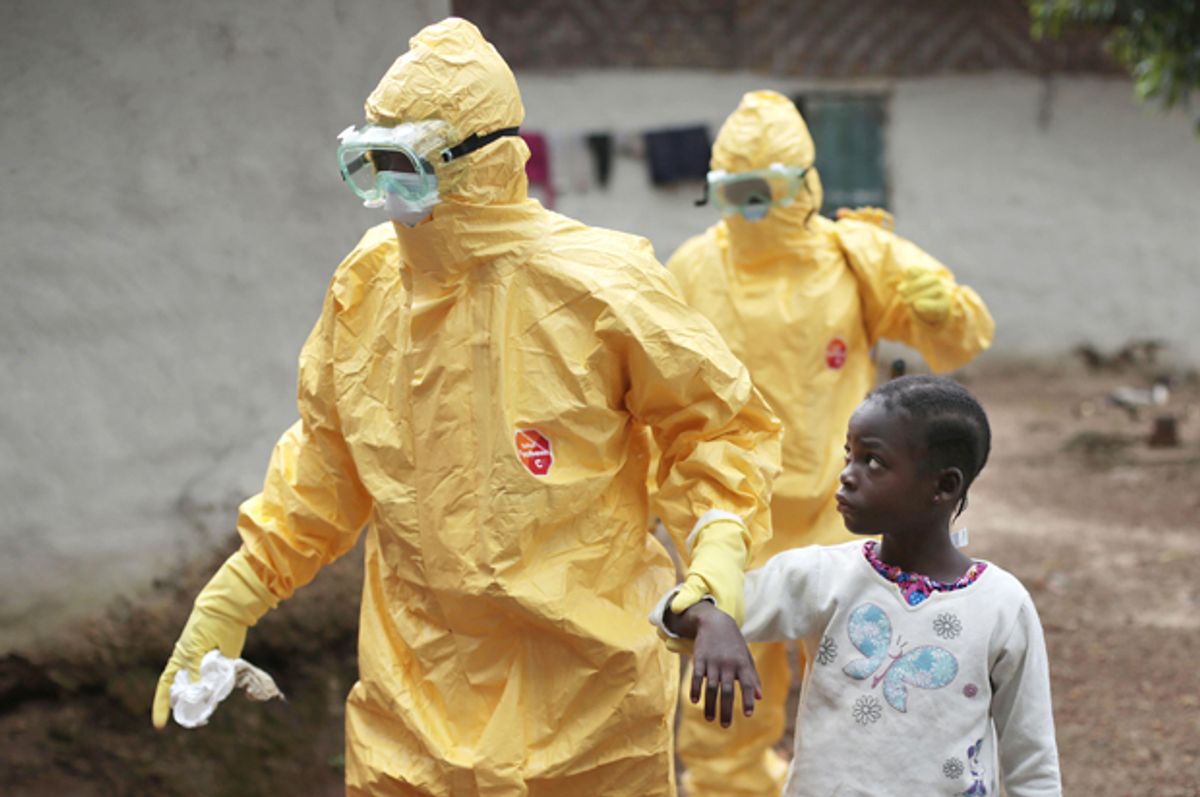The Ebola outbreak has officially ended in West Africa, the U.N. health agency declared Tuesday.
The fatal disease broke out in Guinea in December 2013, before spreading to neighboring Sierra Leone and Liberia. A handful of cases of Ebola were subsequently reported in Nigeria, Mali, the U.S., and some European countries, yet were all contained.
"This is the first time that all three countries – Guinea, Liberia and Sierra Leone – have stopped the original chains of transmission that were responsible for starting this devastating outbreak two years ago," said World Health Organization Regional Director for Africa Matshidiso Moeti in a statement.
The World Health Organization declared the end of the Ebola outbreak in Sierra Leone in November. It has now been 42 days since a case of the disease has been reported in Guinea. The country will remain under heightened surveillance for 90 more days, in order to ensure that there are no new cases.
In total, at least 11,300 people were killed in the outbreak — the largest Ebola epidemic in history — according to the World Health Organization (although this is a conservative estimate, and likely an underestimate of the actual death toll). The vast majority of victims lived in the three West African nations.
Children bore a particularly large brunt of the suffering. A toddler was the first victim of the contagious disease. During the outbreak, more than 22,000 kids lost one or both parents in Guinea, Liberia and Sierra Leone. In Guinea alone, 6,220 children lost a parent, and 519 more were killed.
UNICEF warned that tens of thousands of children will need continued support.
"While we mark this occasion, we must all remember that children were greatly impacted by Ebola. They were more likely to die if infected," stressed UNICEF Guinea Representative Mohamed Ag Ayoya.
"They are traumatized and continue to be stigmatized in their neighborhoods. For thousands of girls and boys, the outbreak does not end today. It will be with them throughout their lives. Let us commit to be with them too," the UNICEF official added.
Since Ebola was contained in the West in 2014, however, western governments and media outlets have largely ignored the continued suffering of Africans.
When just a mere four cases were reported in the U.S. in 2014, the media exploded. Despite the fact that just one person in U.S. (who was not American) died from the disease, warnings filled headlines and Americans were terrified they could be next. Scientists and experts warned that this fear-mongering was irrational, dubbing it baseless "hysteria" and "epic, epidemic overreaction" — but the press fanned the flames.
That same hysterical media then suddenly became silent when the disease was contained in the West. This reaction led critics and activists to accuse the western media of bias and racism. When white people were threatened by the disease, there was exponentially more concern and interest; when they were no longer threatened, there was silence.
In the year since, there has been little concern devoted to the tens of thousands of victims. With the declaration that West Africa is Ebola-free, the World Health Organization has called on nations to stop ignoring the survivors.



Shares